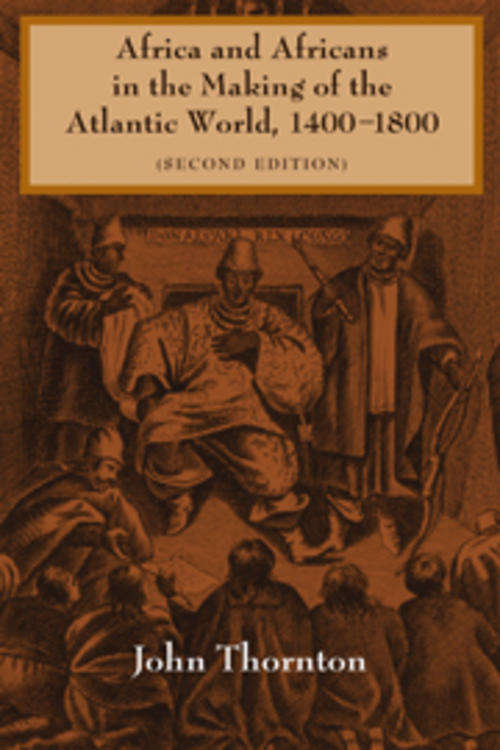
Africa and Africans in the Making of the Atlantic World, 1400 to1800, 2nd Edition, Cambridge UP
Check my rate
| Main centres: | 1-3 business days |
| Regional areas: | 3-4 business days |
| Remote areas: | 3-5 business days |

| Main centres: | 1-3 business days |
| Regional areas: | 3-4 business days |
| Remote areas: | 3-5 business days |
Africa and Africans in the Making of the Atlantic World, 1400–1800
2nd Edition
Studies in Comparative World History
John Thornton
'A major contribution … the strongest and most articulate statement that Africa and Africans were not passive agents … provocative and insightful.' Paul E. Lovejoy, Journal of Interdisciplinary History
This 1998 book explores Africa's involvement in the Atlantic world from the fifteenth century to the eighteenth century. It focuses especially on the causes and consequences of the slave trade, in Africa, in Europe, and in the New World. African institutions, political events, and economic structures shaped Africa's voluntary involvement in the Atlantic arena before 1680. Africa's economic and military strength gave African elites the capacity to determine how trade with Europe developed. Thornton examines the dynamics of colonization which made slaves so necessary to European colonizers, and he explains why African slaves were placed in roles of central significance. Estate structure and demography affected the capacity of slaves to form a self-sustaining society and behave as cultural actors, transferring and transforming African culture in the New World.